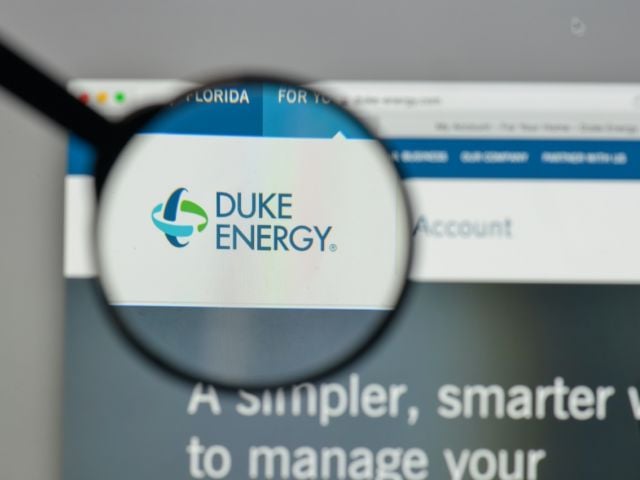Environmental Working Group (EWG) commends Senator Jeff Bingaman on the introduction of the Hardrock Mining and Reclamation Act of 2009 and for his leadership on this important issue. This bill marks the first serious effort to reform the 1872 Mining Law in the Senate since 1994.
The legislation would help move our mining law into the 21st Century by implementing a first-ever royalty and reclamation fee for hardrock mining and by creating an abandoned mine cleanup fund. The fund would help create jobs in rural communities to mitigate the boom/bust cycle of mining and would help address the estimated $20- $55 billion cleanup cost of abandoned mines. The legislation would put a permanent end to patenting – a giveaway under which mining interests have been able to privatize public land for as little as $2.50 an acre.
Mining reform is long overdue. Mining has been the United States’ leading source of toxic pollution for nine consecutive years according to the Environmental Protection Agency’s Toxics Release Inventory. According to our analysis of Bureau of Land Management (BLM) records, the number of mining claims on federal land has surged from 207,540 in January 2003 to 451,463 in January of 2009. Any of these claims could be developed into a mine including thousands of claims near communities and National Parks. The impacts to people, water and wildlife could be catastrophic. And yet, the industry continues to operate largely under a law signed by President Ulysses S. Grant in 1872 that treats mining as the highest and best use of federal land.
We urge the committee to pass comprehensive mining reform. While Sen. Bingaman’s bill is a significant step forward, the committee should work to strengthen the legislation by ensuring that reform includes the following provisions:
- Balance mining with other interests: Land managers should have the ability to balance mining with other resources such as water quality. Currently, land managers take the position that they must approve mining no matter the impacts on other resources. Managers must have the ability to determine in some cases that mining in not appropriate just as they can with oil, natural gas and other extractive industries.
The situation near Grand Canyon National Park highlights this concern. In December 2007, the Forest Service approved a British company’s plan to conduct exploratory drilling for uranium as close as two miles to the park. “The 1872 Mining Law specifically authorizes the taking of valuable mineral commodities from Public Domain Lands,” the service wrote in justifying its decision. “A ‘No Action’ alternative is not an option that can be considered.” As of January 2009, there were 1,165 mining claims within five miles of the park, any one of which could be developed. This spring, the BLM gave the green light for a Canadian company to conduct exploratory drilling near the park.
The Bingaman bill takes a step forward by applying a standard to all federal lands that land managers must prevent “unnecessary or undue degradation” resulting from mining. However, federal land managers’ deferential stance toward mining on public lands and testimony presented to the committee last year from former BLM and Forest Service Chief, Mike Dombeck, suggests that this standard is not strong enough to empower land managers to say no to a mine. The committee should work to strengthen this standard.
- Protect special places: Mining companies should generally be allowed to operate on federal lands, but some places should be off-limits to claims. These places include Forest Service Roadless Areas, Wilderness Study Areas, lands designated for inclusion in the Wild and Scenic River System, and lands petitioned for withdrawal from mining by tribal, state or local governments.
Once a claim is staked in these areas, taxpayers may have to spend millions to prevent mining. In 1996, the federal government paid $65 million to buy out patented claims just three miles from Yellowstone National Park that would have been the site of a major gold mine. The mine would have been located at the headwaters of three streams that flow into the park.
The Bingaman bill would help protect special places by authorizing a study of the areas mentioned above with the provision that the Secretary may put them off-limits to mining following completion of the study. The committee should go further and place these sensitive areas off-limits to claims.
- Tougher standards for mine permits and cleanup: Mining companies should not be able to receive a mining permit if their mines would require perpetual water treatment or where operations would impair the resources of National Parks or Monuments. Companies should also put up enough money before operations begin to cover the full costs of cleanup should the company go bankrupt or abandon the site.
The Bingaman bill would help improve mining standards by allowing the government to order creation of a long-term fund for water treatment for each mine. The bill also provides that the government may not release any bonds that cover the cost of cleanup until any discharge of water from the mine has ceased for at least five years or the mine operator has met all discharge limits and water quality standards for at least five years. These standards should be strengthened with requirements that no permit shall be issued until companies can establish that their operations will not result in perpetual water treatment or harm to National Parks or Monuments.
- An end to mining’s tax break: In addition to being able to mine royalty-free, mining companies can claim a tax break on up to 22 percent of the income that they make off hardrock minerals mined on federal public lands. Though this issue is outside the committee’s jurisdiction, committee members should join with other members of Congress to close this loophole.
Mining provides materials essential to our economy, but it must be conducted in a way that strikes a balance with other values. We look forward to working with the committee to ensure that mining on our public


